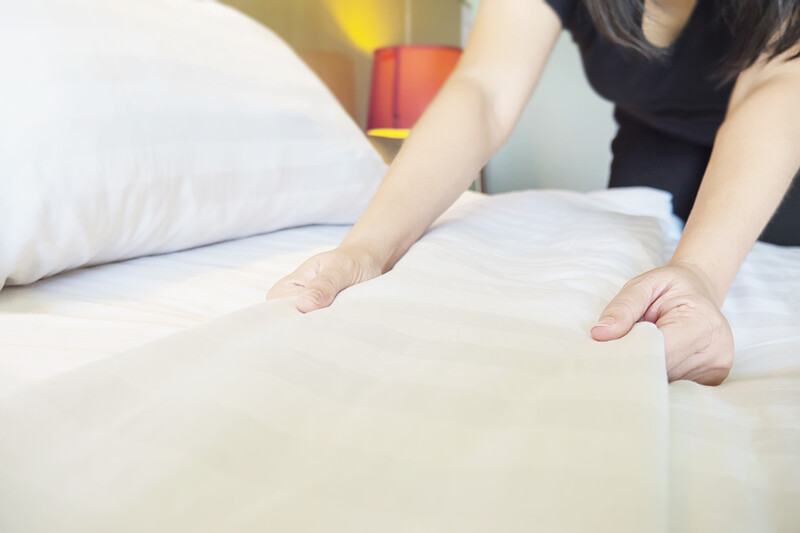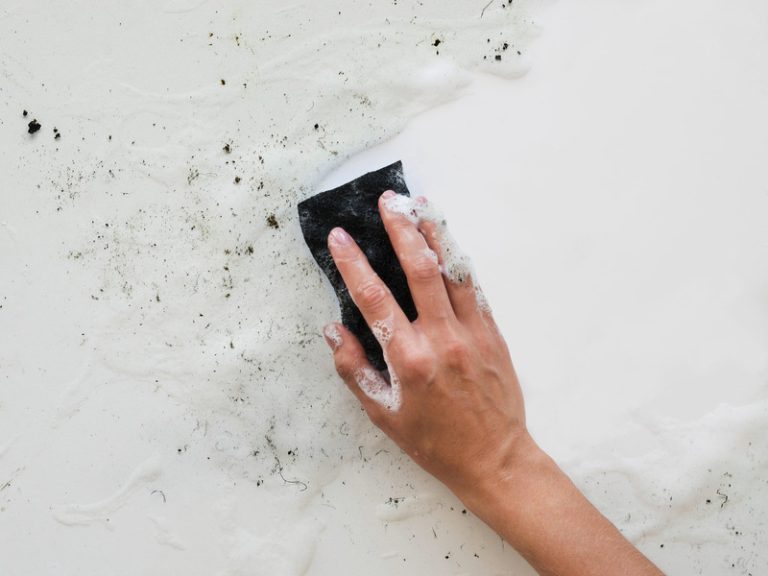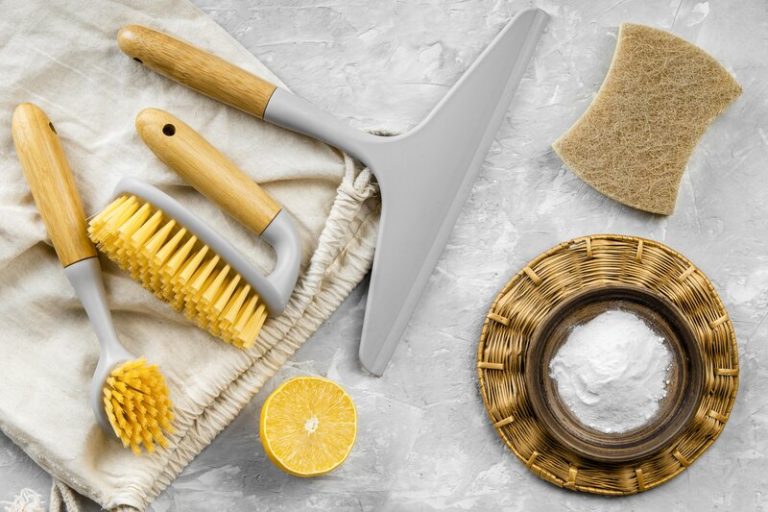Wondering how many times should you clean your bed sheets? Keeping your linens fresh is crucial for both hygiene and a good night’s sleep. Many people overlook the importance of regular sheet washing, but it can affect your health and comfort.
In this article, we’ll explore the ideal cleaning frequency, factors that might influence how often you should wash your sheets, and the impact of neglecting this simple chore. You’ll also find practical tips for maintaining freshness in between washes. Discover how to create a cleaner, more comfortable sleep space!
How Often Should You Clean Your Bed Sheets?
Maintaining a regular cleaning routine is key to keeping your bed sheets fresh and hygienic. Experts recommend washing sheets, pillowcases, and duvet covers weekly or every two weeks to minimise allergens and germs. Knowing how many times should you clean your bed sheets is essential for promoting sleep health.
The frequency can vary based on personal habits and comfort preferences. Washing your bedding often not only preserves its longevity but also enhances your sleep quality by providing a clean, inviting environment for rest.
Why Is It Important to Clean Your Bed Sheets?
Cleaning bed sheets regularly is crucial for sleep health and well-being, as accumulated allergens can cause skin irritation and respiratory issues. Washing your bedding often prevents pollutants from disrupting your sleep. How many times should you clean your bed sheets is an essential consideration for creating a healthy sleep space.
Regularly cleaning sheets also reduces the risk of allergies from dust, pollen, and pet dander. Maintaining a clean sleeping environment ensures comfort while promoting overall hygiene and reducing health risks.
What Happens If You Don’t Clean Your Bed Sheets Enough?
Neglecting to clean your bed sheets can negatively affect your health and sleep quality. Unwashed sheets may harbor allergens, dust mites, and bacteria, leading to skin irritation or respiratory problems. Knowing how many times should you clean your bed sheets helps prevent these issues and maintain comfort.
Without proper care, sheets can become breeding grounds for harmful microbes, increasing the risk of infections and allergic reactions. Regularly washing your bedding is essential for preventing discomfort and ensuring restful sleep.
What Are the Signs That Your Bed Sheets Need to Be Cleaned?
Frequent sneezing, coughing, or skin irritation may indicate that your bed sheets are due for a wash. If you notice stains, discolouration, or a musty smell, it’s time to clean your sheets. Knowing how many times should you clean your bed sheets helps prevent allergens from building up.
Unexplained rashes or a persistent odour also signal that your bedding may be harbouring dust mites, sweat, or oils. Regular cleaning can restore freshness and ensure a healthier sleeping environment.
What Factors Affect How Often You Should Clean Your Bed Sheets?
Several factors affect how often you should clean your bed linen, and understanding them can help you establish an effective washing routine. Here’s the full explanation:
a. Personal Hygiene
Personal hygiene significantly impacts how many times should you clean your bed sheets. Those who prioritise cleanliness, shower regularly, and change into fresh pyjamas nightly may benefit from washing their sheets weekly. This routine prevents sweat and oil buildup, maintaining skin health and comfort during sleep.
To enhance hygiene, using mattress protectors and non-comedogenic skincare products can minimise bacteria and allergens. Proper laundry practices ensure long-lasting freshness, creating a cleaner and more restful sleeping environment.
b. Pets in the Bed
Having pets in the bed increases the frequency of cleaning due to the presence of fur and dander. If your pets share your bed, experts recommend washing your bedding weekly to eliminate allergens that may affect sleep quality. Understanding how many times should you clean your bed sheets is crucial for maintaining a pet-friendly sleep space.
Regular cleaning minimises allergens that can exacerbate respiratory issues, ensuring that both you and your pets enjoy a cosy and hygienic sleeping environment. Hypoallergenic detergents can further reduce irritation.
c. Allergies or Respiratory Issues
For individuals with allergies or respiratory problems, washing bed sheets at least once a week is essential to reduce allergen exposure. Dust mites, pollen, and pet dander accumulate in bedding, making frequent cleaning necessary. Knowing how many times should you clean your bed sheets is crucial for improving respiratory health and comfort.
Using hot water above 60°C effectively kills dust mites, while hypoallergenic materials can further help reduce allergens. This routine ensures a more comfortable and allergen-free sleeping space, alleviating symptoms.
d. Climate and Sweat
Climate plays a key role in determining how many times should you clean your bed sheets. In warm, humid conditions, washing your bedding weekly helps manage sweat and moisture buildup. Conversely, in drier climates, you may extend the interval to every two weeks, while ensuring sheets are aired regularly.
Adapting your cleaning routine based on weather conditions helps maintain freshness and extends the life of your bedding. Breathable fabrics can further reduce sweat, enhancing comfort during sleep.
How to Clean Your Bed Sheets?
Cleaning your bed linen effectively involves understanding the correct methods and techniques for maintaining their cleanliness and longevity. Begin by:
a. Washing Machine Settings
Choosing the correct washing machine settings is essential for preserving your bed linen while achieving a thorough clean. For cotton and bamboo sheets, a warm or hot water setting is recommended to remove allergens and bacteria. Understanding how many times should you clean your bed sheets helps in setting an appropriate washing routine.
Delicate fabrics require cooler temperatures and gentle cycles to avoid damage. Always refer to the care label for optimal settings, and consider using fabric softeners or dryer balls to maintain the texture and quality of your linens.
b. Drying and Ironing
Proper drying and ironing techniques are vital for maintaining the cleanliness and quality of your bed linen. Use a low-heat setting to prevent shrinkage, and shake out the linen before drying to reduce wrinkles. Knowing how many times should you clean your bed sheets helps in setting up a proper maintenance routine.
Ironing with steam can help eliminate remaining allergens and wrinkles. Adjust your iron settings based on fabric type: higher for cotton and lower for synthetics. Following these practices ensures your bedding remains fresh and comfortable.
c. Special Care for Different Types of Bed Sheets
Different bed sheets require specific care to maintain their quality. For instance, silk sheets need cold water and gentle cycles, while cotton and bamboo can handle warmer temperatures. Understanding how many times should you clean your bed sheets helps in developing a care routine for different fabrics.
Microfiber sheets should avoid fabric softeners, and flannel requires a gentle cycle with warm water. Linen sheets, although durable, benefit from a cool wash and air-drying. Adhering to these guidelines ensures your bedding stays vibrant and comfortable.
How to Keep Your Bed Sheets Clean Between Washes?
Keeping your bed linen clean between washes is essential to maintaining a fresh and healthy sleeping environment. As for how to do it, that is by:
a. Use a Top Sheet
Using a top sheet is an effective method to keep your bed sheets cleaner for longer. By placing a top sheet over your fitted sheet and duvet, you create a barrier that reduces direct contact with allergens, sweat, and dirt. This practice helps you maintain clean sheets and reduces the frequency of washing.
Incorporating a top sheet not only prolongs the life of your bedding but also helps in reducing allergens and oils. Knowing how many times should you clean your bed sheets will guide you in using a top sheet as a practical solution for maintaining a fresher and more hygienic sleep environment.
b. Shower Before Bed
Showering before bed is essential for keeping your bed linen clean. By washing off sweat, oils, and allergens, you reduce their transfer to your sheets, which helps maintain a fresher sleeping environment and minimizes the risk of skin irritation.
This habit also contributes to overall skin health and enhances sleep quality. Understanding how many times should you clean your bed sheets can be complemented by the practice of showering, ensuring that your bedding remains clean and your sleep environment is comfortable and healthy.
c. Keep Pets Off the Bed
Keeping pets off the bed is crucial for maintaining clean sheets and reducing allergens. Pet dander and fur can accumulate on bedding, leading to allergic reactions and increased dust mites. By establishing a pet-free zone, you ensure a cleaner, healthier sleeping area.
This practice not only supports better health but also reduces the need for frequent washes. Knowing how many times should you clean your bed sheets is simplified by keeping pets off the bed, as it minimizes additional laundry and keeps your sleeping environment fresher and more inviting.
d. Change Pillowcases Regularly and Consider cotton bamboo sheets
Regularly changing pillowcases is vital for maintaining clean bed sheets and a healthy sleep environment. Fresh pillowcases should be swapped out weekly to prevent the buildup of oils, sweat, and allergens that can affect sleep quality and skin health.
In addition, consider using hypoallergenic pillowcases and cotton or bamboo sheets for added protection. Understanding how many times should you clean your bed sheets helps you manage the frequency of pillowcase changes, ensuring a comfortable and allergen-free sleeping space.
Ultimately, when considering how many times you should clean your bed sheets, it’s clear that frequent washing is key to a healthier and more comfortable sleep environment. Clean sheets can make a significant difference in your quality of rest and overall well-being.
For an effortless way to keep your bed linens in perfect condition, look no further than TEKA Cleaning. Our residential cleaning services don’t just cover the basics, we offer specialised bed sheet cleaning and ironing services to ensure your sheets are not only clean but also perfectly pressed.
By choosing TEKA Cleaning, you’re investing in a comprehensive, hassle-free solution for all your linen needs. Don’t wait—contact us today at 01223 751 544 to arrange your service and transform your bedroom into a spotless, luxurious retreat!
Read also:











